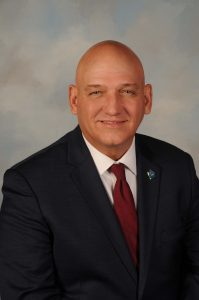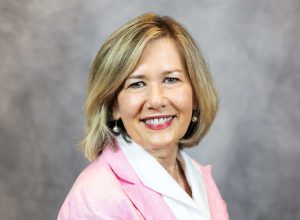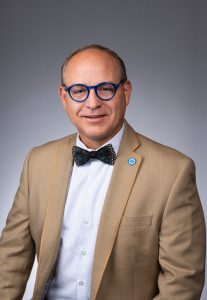
Meet the Candidates
The 2025 AAA Election will once again be paperless and held entirely online. Primary contacts of Active Single State and Multi-State Members are permitted by AAA’s bylaws to vote in board elections.
2025 Election Timeline
- July 21 | Nominations Open
- August 22 | Final Call for Nominations
- September 9 | Board Ratification of Slate
- Week of September 15th | Voting Opens (Ballots will be emailed to voting member primary contacts.)
- October 24 | Voting Ends
- November 2 | Results Announced at the Stars of Life Board & Membership Meeting
2025 Candidates
Thank you and best of luck to this year’s slate of talented and seasoned board candidates.
Region I Director—2 Candidates
Region 1
ME, NH, VT, MA, RI, NY, CT, NJ
Frederick (Derick) Aumann
Director
New London Hospital Ambulance Service
Candidate Statement
As a lifelong paramedic and EMS leader, I believe that the future of our profession depends on collaboration, innovation, and a clear, unified voice. I’m running for AAA Region 1 Director because I am committed to advancing meaningful policy, sustainable funding, and workforce development at the national level.
In my current role leading a rural hospital-based ambulance service and as President of the New Hampshire Ambulance Association, I’ve seen firsthand how diverse our systems are, and how essential it is that every EMS provider, regardless of service model or geography, feels represented and engaged in our collective future. One of my priorities has been to bridge those divides by fostering open communication, building coalitions, and encouraging participation from every corner of the profession.
I believe the American Ambulance Association must continue to lead these efforts nationally, to not only advocate for reimbursement and workforce solutions, but to actively bring all EMS professionals to the table. Whether you’re private, municipal, hospital-based, volunteer, or fire-based, your voice matters. Together, we can strengthen EMS as a recognized, respected, and integrated part of healthcare.
I would be honored to bring Region 1’s voice to that mission.
History of Career in EMS
I got my start in EMS back in 1986 as an Explorer Scout with the Amherst Rescue Squad, and I’ve been hooked ever since. I earned my EMT in 1988 and became a paramedic in 1992. Since then, I’ve worked in just about every EMS setting you can imagine, private, hospital-based, and third-service and held roles ranging from frontline paramedic to operations, HR, and ultimately, leadership.
I’ve always loved the unpredictability and purpose of EMS, but I never went the fire route, mostly because I’m afraid of heights and never really trusted those ladder trucks. Give me a patient on a sketchy back road at 3 a.m. any day over a roofline rescue.
Each chapter of my career has taught me something new, and I’ve carried those lessons into my current role, where I focus on building systems that support providers and deliver quality care to the communities we serve.
Top 3 Issues in Emergency Healthcare
- The single most urgent challenge in EMS today remains the persistent failure of reimbursement to reflect the true value and cost of prehospital care. EMS agencies, regardless of service model, are under constant financial pressure due to outdated fee-for-service models, limited recognition of non-transport care, and delays in payment. Until we fix the reimbursement system, all other reforms will struggle to take root. This issue must remain front and center in every policy conversation, public awareness campaign, and legislative strategy.
- Second, EMS is still too often treated as transportation rather than care. Despite the clinical expertise, lifesaving interventions, and critical role in the healthcare continuum, EMS is not universally recognized as an essential part of the healthcare system. This lack of status impacts funding, integration, and even inclusion in public health planning. We must push, loudly and persistently, for federal and state-level recognition of EMS as healthcare. That recognition will be foundational to solving the workforce, funding, and integration challenges we face.
- Staffing challenges are the inevitable outcome of underfunding and undervaluing the profession. Burnout, poor pay, and lack of long-term career viability are driving providers out of the field. EMS cannot recruit or retain effectively without a system that respects and supports its people. Fixing reimbursement and achieving essential provider status will unlock the resources and visibility needed to truly invest in the EMS workforce.
Top 3 Priorities for AAA
- The AAA has long been a national leader in advocating for fair and sustainable EMS reimbursement. It must continue pushing forward to ensure payment models reflect the true cost of readiness, care delivery, and non-transport services. This includes:
Advancing legislation to support value-based models like Mobile Integrated Health, treat-in-place, and community paramedicine.
Continuing efforts to modernize Medicare and Medicaid reimbursement, and challenge commercial payers to appropriately value EMS services.
Ensuring reimbursement supports both clinical and operational readiness—not just transportation. Reimbursement reform is not a future goal; it is an ongoing fight, and AAA must remain at the forefront.
- Promote Public Awareness of EMS Value, Public understanding of EMS is limited. AAA should lead national efforts to: Launch media campaigns and community engagement initiatives showcasing the role of EMS beyond 9-1-1 response.
Launch media campaigns and community engagement initiatives showcasing the role of EMS beyond 9-1-1 response.
Celebrate EMS Week with a coordinated national message emphasizing EMS as a healthcare provider, not just a transport service.
Encourage storytelling and digital outreach to connect communities with their EMS providers.
- Unifying the Profession – One Voice for All EMS
AAA must expand its role as a coalition builder across all EMS service types, private, hospital-based, fire, municipal, and volunteer by:
Offering equitable representation in policy discussions.
Providing platforms for collaboration and shared messaging across state associations.
Investing in leadership development, data sharing, and policy education that elevates all voices in EMS.
Dennis Cataldo 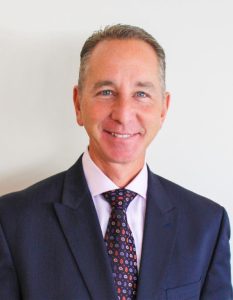
President/CEO
Cataldo Ambulance Service, Inc.
Candidate Statement
Thank you to all Region 1 members that have allowed me to represent you and your agencies for the past three years. In my role representing you, I have had the opportunity to work closely with many EMS professionals across our Nation. I am amazed at the experience, knowledge, and dedication of these industry leaders. Each of them is extremely involved and remarkably effective in helping us succeed during these most challenging times. Whether it is a legislative agenda, educational program, reimbursement challenge, Annual Conference, or recognition event, the AAA leadership and Board are steadfast in their commitment to the membership.
I am excited for the future; We have challenges ahead, but also many opportunities to achieve greater success. It has been a pleasure working alongside the other Region 1 Representative, and I ask for your vote in the upcoming election.
History of Career in EMS
My parents jointly endeavored into the private ambulance industry in 1977 when they opened the doors to our company, I was eight at the time. Being an only child, I had constant exposure to the ambulance business, my parents worked countless hours growing the company and I was the sponge that absorbed all they had to say. I had done many jobs over the years, starting at about age 13, that continued until I graduated college. At that time, I took a full-time role with the company, focused on quality improvement, program development, customer satisfaction and employee engagement. My success in these areas led to the dramatic advancement of the company which has continued for the past 35 years. I have been recognized by many local EMS related agencies and presently serve as the President of the Massachusetts Ambulance Association.
Top 3 Issues in Emergency Healthcare
- Staffing, both EMT and Paramedic
- Equitable Reimbursement
- Escalating Operating Expenses
Top 3 Priorities for AAA
- An aggressive legislative agenda focused on sustainable funding.
- Quality educational programs that deliver meaningful information to all members.
- Initiating and executing a strategic plan focused on the future of EMS.
Region II Director—2 Candidates
Region 2
PA, WV, MD, VA, NC, SC, GA, FL, DC, DE, MS, AL
John Peterson
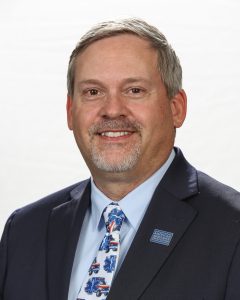
Executive Director
Mecklenburg EMS Agency (Medic)
Candidate Statement
I have been actively involved with the American Ambulance Association (AAA) for over a decade, serving on the Bylaws, Ethics, and Professional Standards Committees. From 2016 to 2021, I served as President-Elect, President, and Immediate Past President of the Florida Ambulance Association before relocating to North Carolina.
I have held executive leadership positions in three of the nation’s largest 911 EMS systems (Sunstar, EMSA, and MEDIC) and bring extensive operational and administrative expertise to the table. As a licensed paramedic in both Florida and North Carolina, I also have years of field experience, which continues to inform my leadership approach. I believe my experience, both at the state association level and in leading high-performance EMS systems, has prepared me well to serve as Regional Director for the AAA.
History of Career in EMS
I began my EMS career in 2000 as an EMT with Superior Ambulance in Chicago, advancing to Paramedic in 2002. In 2003, my wife and I relocated to Florida, where I joined Sunstar Paramedics. Over the next several years, I advanced through multiple leadership roles, ultimately serving as Director of Operations in 2010.
In 2012, I accepted a promotion to Chief Operating Officer at EMSA in Oklahoma. After two years, I returned to Sunstar as Chief Administrative Officer before being promoted to Chief Operating Officer in 2015. In 2021, I was honored to accept the position of Executive Director at MEDIC in Charlotte, North Carolina.
I hold an MBA in Healthcare Management from the University of Texas at Tyler, graduating in the top 10% of my class and earning induction into the Beta Gamma Sigma International Honor Society.
Throughout my career, I have led three of the nation’s largest EMS systems, all of which are CAAS and ACE accredited, with Sunstar also earning CAMTS accreditation. Under my leadership, Sunstar received multiple AMBY Awards (2015, 2017, 2018, 2019) and numerous state-level honors. MEDIC also received 2 AIMHI awards in 2024.
Top 3 Issues in Emergency Healthcare
- Reimbursement/Funding
- Staffing
- Physical and Psychological safety of EMS providers
Top 3 Priorities for AAA
- Providing information and opportunities for engagement with AAA membership regarding the expected impacts of the “Big Beautiful Bill” on EMS providers.
- Working with providers at a state level to create or improve balanced billing legislation to benefit members and patients
- Ensure that the temporary Medicare extenders are made permanent at a rate that adequately reimburses ambulance providers of all types and locations
Shane Wheeler
Candidate Statement
As a candidate for the Regional Director seat of the American Ambulance Association, I bring over 30 years of service and leadership in EMS, spanning private, government, volunteer, nonprofit, and for-profit organizations. Throughout my career, I have navigated the evolving challenges of our profession, ensuring financial sustainability, adapting to regulatory changes, and maintaining excellence in patient care.
I advanced our profession’s dialogue by actively bringing our profession’s challenges to the public. I have published articles in trade journals and presented at regional and national conferences, including the AAA Annual Conference.
Today, our profession stands at a crossroads, facing workforce shortages, escalating operational costs, and the urgent need for strong advocacy at the federal and state levels. I believe our success depends on innovation, strategic advocacy, and elevating the professional standing of EMS.
As Regional Director, I will bring proven leadership, a strong record of advocacy, and a passion for advancing EMS. I am committed to ensuring that the AAA remains the leading voice for our industry, building a stronger, more sustainable future for providers and the communities we serve.
History of Career in EMS
I am an accomplished Fire and EMS leader with three decades of experience across nearly every service model. Known for setting high standards and driving organizational excellence, I bring a proven record of compliance, performance improvement, and strategic leadership.
I see myself as a champion of EMS, consistently challenging peers and colleagues to elevate their professionalism and master their craft. My leadership philosophy is grounded in thoroughness, accountability, and the belief that strong EMS systems strengthen entire communities.
Top 3 Issues in Emergency Healthcare
The top three challenges confronting EMS are:
- Workforce Sustainability and Development
Addressing the nationwide shortage of EMS professionals through competitive compensation, career pathways, and enhanced professional development. - Financial Stability and Reimbursement Reform
Advocating for Medicare/Medicaid reimbursement reforms and fair compensation for essential EMS services while building sustainable funding models. - Regulatory Advocacy and Policy Influence
Ensuring EMS has a strong, unified voice in legislative and regulatory processes so that policies reflect our value as an essential component of healthcare and public safety.
Top 3 Priorities for AAA
- Workforce Sustainability and Development
- Financial Stability and Reimbursement Reform
- Regulatory Advocacy and Policy Influence
Region III
Region III Director—3 Candidates
Region 3
MI, WI, IL, OH, KY, TN, IN
Kolby Miller
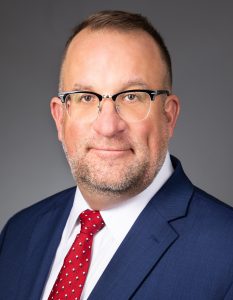
CEO
Medstar
Candidate Statement
I’m honored to announce my candidacy for the Region III Director position.
With 30 years of experience as an EMS provider and two terms as President of the Michigan Ambulance Association, I’ve been fortunate to spend my career working alongside incredible EMS professionals, agencies, and industry leaders.
My longstanding involvement with the American Ambulance Association has given me a deep appreciation for the impact of our work, and I look forward to expanding that engagement. Together, I believe we can continue to strengthen, stabilize, and grow the value that our member agencies bring to their communities every day.
History of Career in EMS
My career in EMS began as a volunteer firefighter in my hometown just outside of Flint, Michigan. I became a full-time EMT in 1987 and a paramedic in 1989. Over the years, I’ve been fortunate to serve in a variety of organizations—municipal, private for-profit, private not-for-profit, and national for-profit—gaining a broad perspective on how EMS is delivered in different systems.
Throughout my career, I’ve held roles that span nearly every aspect of EMS, including full-time educator, operations manager, regional billing office director, director of operations, vice president of operations, and vice president of clinical services. For the past 21 years, I’ve had the privilege of serving as Chief Executive Officer.
Top 3 Issues in Emergency Healthcare
- Financial stability for agencies of all sizes and structures
- Personnel development/recruiting
- Patient and provider-centered EMS system re-design and development
Top 3 Priorities for AAA
- Payment Reform
- Workforce Shortage
- Patient and provider-centered EMS system re-design and development
Michael Pieroni
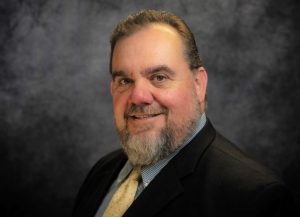
Chief Operating Officer
Medical Express Ambulance, dba MedEx Ambulance
Candidate Statement
With 37 years in Private EMS in the Chicago area, I bring a lifetime of frontline experience, leadership, and unwavering commitment to the advancement of our industry. I have served in every role within an EMS agency, from EMT to dispatcher, supervisor to executive. I have also had the privilege of owning and operating my own ambulance service for more than 15 years. This diverse background gives me a comprehensive perspective on the challenges we face at every level.
I understand firsthand the operational, regulatory, financial, and workforce pressures confronting EMS providers today. I am passionate about advocating for policies that support our sustainability, recognize our critical role in healthcare, and improve the lives of those who serve in the field.
If elected to the AAA Board, I will work tirelessly to strengthen the voice of EMS, ensure we are represented in national dialogue, and help build the future of EMS through innovation, collaboration, and practical solutions. I am committed to listening, learning, and leading with integrity on behalf of our members.
Thank you for your consideration.
History of Career in EMS
I worked as an EMT, Field Training Officer and eventually the Director of Human Resources and Operations for Tower Ambulance (Chicago) from 1987 -1994. In 1994 Tower was purchased by Consolidated Medical Transport. I was the Director of Human Resources for more than 1200 employees in three states. In 1996, I, along with a partner, purchased McKeown Dunn Ambulance in Aurora and formed my own service called FirstCare Ambulance. In 2011, I began working with Medical Express Ambulance Service (MedEx Ambulance) in Chicago, where today I manage the service as the Chief Operation Officer.
Top 3 Issues in Emergency Healthcare
- Recruiting and retention of quality personnel to do the job.
- Caring for training and supporting a young workforce through life’s challenges.
- Maintaining and creating adequate reimbursement to support the above initiatives.
Top 3 Priorities for AAA
1. Continuing to keep EMS top of mind for DC legislators.
2. Provide localized training and services within the National AAA Regions.
3. Maintain an open mind and creativity to enhance and grow our reimbursements.
Tom Tornstrom
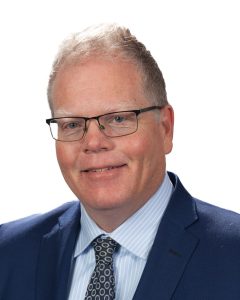
Director of EMS
Emplify Health System by Gundersen
Candidate Statement
I have had the honor of serving as the director for Region III since 2023, following two terms as an alternate board member. Throughout my tenure, I have actively contributed to numerous committees, including holding leadership roles that have enabled me to help shape the direction of our association.
My experience overseeing non-profit ground and air ambulance services within a health system, combined with my broader involvement in the AAA, provides me with a well-rounded perspective on the challenges and opportunities facing all ambulance services. I firmly believe that every ambulance service, regardless of ownership or structure, plays a vital role in our nation’s healthcare system. Harnessing the collective advocacy of all these services is essential to our profession’s continued strength and growth.
I remain committed to advocating for increased reimbursement and supporting the expansion of innovative treatment modalities, such as treatment in place and telehealth, while ensuring that appropriate reimbursement accompanies these advancements.
Together, we can continue to advance our profession and deliver exceptional care to the communities we serve
Areas of responsibility within your organization (administrative, operational, billing, etc.):
I serve as the administrative leader for a large health system, providing leadership, guidance, and strategic direction for our ambulance services. My responsibilities also extend to supporting functions, including dispatch, education, revenue cycle, fleet services, and quality assurance to ensure comprehensive and effective service delivery.
History of Career in EMS
My passion for EMS was ignited in 1990 when I began as a volunteer EMT in Minnesota. I started my full-time career in 1994 with Tri-State Ambulance, where I have had the opportunity to serve in nearly every role within the organization. Since 2009, I have been honored to lead as the executive director. Over the years, organizations and my responsibilities have grown significantly, deepening my knowledge and commitment to advancing EMS.
Top 3 Issues in Emergency Healthcare
-
Reimbursement is the foundation that impacts every facet of emergency medical services—from response times and staffing levels to clinical quality and safety. Our top priority is to secure sufficient funding for ambulance services nationwide, with reimbursement playing a pivotal role in sustaining and enhancing our capabilities.
-
Recruitment and retention of skilled EMS professionals are essential to the long-term viability of the field. It is critical to develop and maintain a robust, well-trained workforce pipeline to meet increasing demands and deliver high-quality care.
-
Advocacy and maintaining relevance are vital to the ongoing health of EMS. Our collective voice must be heard by policymakers and regulatory authorities.
Top 3 Priorities for AAA
- The AAA must continue to champion the priorities of EMS with elected officials and federal leaders, ensuring that the needs of our members and the broader EMS community are effectively represented and addressed.
- It is essential to actively listen to and advocate for the voices and concerns of our members and their organizations, making sure their challenges and perspectives are acknowledged and acted upon.
- Strengthening and expanding collaboration with other professional EMS organizations and stakeholders is critical. By working together, we can amplify our collective voice and influence legislators more effectively to advance the interests of EMS.
Region IV
Region IV Director—4 Candidates
Region 4
KS, OK, TX, LA, AR, IA, MN, MO, SD, ND, NE
Thomas Dunn 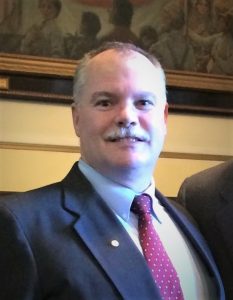
Deputy Chief of EMS
M Health Fairview EMS
Candidate Statement
Former National Registry Paramedic with 30+ years of experience in private and municipal ambulance service industries. Extensive experience in Leadership, Administration, Disaster Planning, and Response. Proven track record of exceptional customer service, clinical excellence, strong communication, and human relation skills. Consistent record of demonstrating ability to interpret organizational mission, prioritize goals, and development of improvement plans. Purposeful champion for employee advocacy and the ability to build strong operational teams while fostering welcoming, inclusive, diverse, and nurturing work environments. Throughout my career, I have led diverse teams across municipal and private EMS systems, overseeing complex operations, regulatory compliance, and large-scale emergency response initiatives.
History of Career in EMS
Early in my EMS career, I couldn’t honestly say I had a passion for the profession at all. My EMS training started as a solution to a scheduling conflict in college. It later became a means to achieve an unrelated career goal. It wasn’t until I saw, firsthand, an EMS professional having a profound impact on the family of a patient that we were treating. “Our job isn’t to save peoples’ lives. Our job is to leave a positive lasting impression on people.” was a mantra my leader shared with me and often repeated in our team circles. It became a significant driver in my professional development. Shortly after that moment, I made a purposeful commitment to becoming more than an EMS clinician but an EMS professional myself.
As the EMS profession continued to grow and present new opportunities for EMS leadership roles, I was able to clearly see that I could apply the same philosophy of positive influence with a twofold return. As a frontline leader, I was able to reap the benefits of leaving positive impressions on new EMS professionals and share with them the benefits of leaving a positive lasting impression on a patient and family that they received.
Today, I continue to incorporate the philosophy of leaving a positive impact. I am committed to supporting my team, leaving positive lasting impressions on our patients and staff, and to be purposeful in leaving a positive lasting impression on our communities and our profession. I believe my participation in local, state, and national leadership roles supports that commitment.
Top 3 Issues in Emergency Healthcare
Funding for sustainable deployment models, EMS education and development, and treatment in place and transport reimbursement.
Top 3 Priorities for AAA
- Balanced Billing
- Medicare Funding /State Medicaid support
- Public Relations Support
Maripat Hodges

Director of OEM Partnership and Programs
Global Medical Response
Candidate Statement
With over 15 years of progressive leadership in healthcare operations, EMS disaster response, and strategic partnerships, I bring a unique blend of clinical insight and healthcare executive acumen to the American Ambulance Association. As Director of OEM Partnerships and Programs at Global Medical Response, I lead national disaster initiatives, manage a network of over 200 providers, and negotiate complex agreements with hospital systems and state agencies. My work ensures rapid mobilization and high-quality service delivery during critical events.
Previously, I spearheaded oncology and palliative care operations at Parkland Health, where I led multidisciplinary teams, executed quality improvement initiatives, and developed strategic programs that enhanced patient outcomes and system efficiency. My background as a Registered Dietitian and educator further grounds my commitment to evidence-based care and community engagement. I’ve presented at ASCO’s Quality Care Symposium, served as Principal Investigator on an NIH-funded study, and earned leadership certifications from Parkland Health and UT Dallas. These experiences reflect my dedication to innovation, collaboration, and advancing healthcare equity.
I am eager to contribute to the AAA Board by leveraging my unique expertise in emergency preparedness, network development, and strategic planning to support the Association’s mission and drive impactful changes across the EMS healthcare industry.
History of Career in EMS
My professional journey in healthcare began outside the realm of EMS, starting with clinical inpatient roles at a major safety-net hospital before transitioning into healthcare administration. These experiences provided me with critical insights into the complexities and challenges that define our healthcare system. While managing an oncology center, I developed a deep
appreciation for the power of interdisciplinary collaboration—particularly through close partnerships with EMS teams.
Together, we enhanced patient triage and improved care outcomes, demonstrating the value of integrated medical services.
Seeking to further serve my community, I joined the Office of Emergency Management at Global Medical Response, where I focus on coordinating large-scale disaster response initiatives. This role allows me to advocate for EMS at a national level and work closely with state EMS leaders. In addition to managing disaster contracts, I also lead our Network Program. This has allowed me to work firsthand with EMS agencies of various sizes nationwide, responding to urgent healthcare needs and disaster situations. This has broadened my perspective on the unique challenges and opportunities facing EMS.
Through this position, I have gained a nuanced understanding of the issues facing our industry and have built relationships with stakeholders from diverse geographic and organizational backgrounds.
I am passionate about advancing the profession of EMS as an integral part of the broader medical system and am committed to fostering collaboration, resilience, and innovative solutions. Serving on the American Ambulance Association Board would empower me to contribute meaningfully to the growth and impact of EMS nationwide, leveraging my unique experience to strengthen our workforce and champion the essential role of EMS within the broader healthcare ecosystem.
Top 3 Issues in Emergency Healthcare
- Shortage of Providers:
Despite efforts made in the aftermath of COVID-19, the industry continues to struggle with significant workforce gaps that impact our ability to deliver timely and effective care. This ongoing shortage highlights the need for innovative recruitment strategies, robust retention initiatives, and inspiring pathways for the next generation of EMS professionals.
- Reimbursement:
As the field transforms, it is imperative that EMS organizations receive fair and adequate compensation that reflects the scope and complexity of the services provided. It is important to navigate the shifting landscape of healthcare policies requires advocacy but also solutions.
- EMS redefining its role within the healthcare ecosystem:
The EMS field continues to evolve its role and identity within the healthcare ecosystem. It has so often been a “trade” when in fact, this is mobile healthcare – delivering critical services with professionalism, compassion, and expertise. It is essential to continue educating stakeholders, lawmakers, and the public about the vital contributions of EMS, fostering understanding and respect that translate into meaningful support.
Top 3 Priorities for AAA
- Workforce Shortage – working on workforce solutions that are sustainable for the EMS community throughout the years.
- Payment Reform and balanced billing
- Building Strong relationships with lawmakers to ensure EMS is well understood
Ken Kelley
President & CEO
ProMed Ambulance
Candidate Statement
With 40 years of experience as an EMS professional and ambulance service owner, I am eager to serve as the Region 4 Board Member for the American Ambulance Association. My extensive background in the field has provided me with a deep understanding of the challenges our industry faces, and I have always been driven by a commitment to excellence in patient care, operational efficiency, community service, and industry advocacy.
Beyond my professional experience, I am deeply passionate about education and the development of the next generation of EMS leaders. Throughout my career, I have consistently sought opportunities to mentor and guide new professionals, believing that the future of our industry depends on the strength and preparedness of those who will lead it. I am dedicated to creating and supporting initiatives that provide robust training, continuing education, and leadership development for EMS professionals at all stages of their careers.
Serving as a board member will allow me to advocate for policies that not only enhance the quality and sustainability of our services but also prioritize the growth and education of our workforce. I am committed to fostering a culture of innovation and collaboration within the association, ensuring that we are well-equipped to meet the evolving needs of our communities. I look forward to the opportunity to contribute my experience, passion, and vision to the American Ambulance Association, helping to shape a future where our industry thrives and our leaders are empowered to succeed.
History of Career in EMS
With over 40 years of continuous service as a licensed EMS professional, my career has spanned frontline patient care, EMS education, and executive leadership. I am the founding partner and CEO of ProMed Ambulance, a licensed Advanced Life Support provider operating across multiple counties in Arkansas. I previously served as Professor and EMS Program Director at South Arkansas Community College for 28 years, shaping the future of EMS in our state through education and mentorship. My service includes active roles under multiple Arkansas gubernatorial administrations on state advisory bodies, including prior terms as Vice Chair of the Arkanas Governor’s EMS Advisory Council, and participation on the Arkansas Trauma Advisory Council and the Arkansas Ambulance Association—where I have served as President and Government Affairs Chair. These roles reflect my dedication to fostering collaboration, operational integrity, and system-wide improvement across the continuum of emergency care.
I am passionate about EMS, grounded in its history, and driven by a vision for its future. I would be honored to continue representing the interests and perspectives as Region IV Director for the American Ambulance Association.
Top 3 Issues in Emergency Healthcare
- EMS Workforce Disparities, Recruitment & Retention
- Medicare Relief and Reimbursement Reform
- Industry Advocacy & Outreach
Top 3 Priorities for AAA
- Next Generation Leadership Development
- Key Stakeholder Outreach & Education
- Member Support
Butch Oberhoff
Senior Director of Governmental Affairs
Acadian Ambulance
Candidate Statement
I am passionate about industry advocacy for EMS. As immediate past president of the Texas EMS Alliance, I am so proud of all we have accomplished on behalf of all providers, including workforce funding, balance billing legislation, a rate increase, and funding for clinical initiatives. Moreover, we have worked to find resources to bring tangible benefits to our members. I look forward to bringing that passion the the AAA board!
History of Career in EMS
I started as an EMT in 1988 and became registered as a paramedic in 1991. Since that time, I have held various supervisor, leadership, and senior leadership roles. I have even taught a number of EMT classes specifically for recent high school graduates. In my current role, I serve as Acadian’s governmental affairs leader in Texas, with supporting roles in Mississippi and Tennessee. I am a founding member of the Texas EMS Alliance, and I’ll be wrapping up my term as president in September. I am most proud of all we have accomplished by working collaboratively with EMS agencies of all sizes and provider types.
Top 3 Issues in Emergency Healthcare
1. Reimbursement, not only from governmental payors, but also how our relationship with commercial payors is defined.
2. Workforce – how are most important resource is recruited and compensated, and why we are left to fend for ourselves, as other healthcare specialties seem to have access to funding for education.
3. Our delivery model and the role of EMS professionals in the healthcare machine. TIP, MIH, and Hospital at Home are just the beginnings of how we can redesign our outdated delivery model and better utilize the highly trained professionals in our agencies. We can improve clinical outcomes and save healthcare dollars by changing the model.
Top 3 Priorities for AAA
I believe AAA should continue to tell our story as it relates to reimbursement—both governmental and commercial—while showing how we can save dollars by changing our model. I have watched as seemingly unending grants and programs are announced to train nurses, but EMS professionals are left to fend for themselves, and I think that should be part of our focus. Outside of our advocacy efforts, I do believe we should continue to provide leadership development opportunities.
Region V Director—2 Candidates
Region 5
AZ, CA, NV, UT, OR, ID, WY, MT, WA, HI, AK, NM, CO
Mike Battis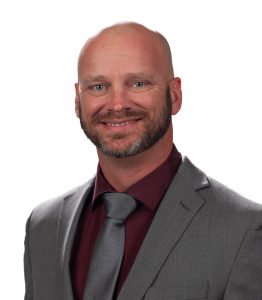
Director of Operations
Ballard Ambulance
Candidate Statement
I have dedicated my entire adult life to Emergency Medical Services. My journey began in 1999 as a volunteer firefighter, followed by earning my EMT certification in 2001 and Paramedic certification from Central Washington University in 2003. Today, I serve as Director of Ballard Ambulance in Wenatchee, Washington, where I remain actively engaged in daily operations while leading at the organizational level.
I am currently serving my third term as President of the Washington Ambulance Association. During this time, we have achieved significant legislative victories, including progress on balanced billing protections, Medicaid reform, and strengthening our advocacy efforts at the state level. Nationally, I recently served as Vice Chair of the State Leaders Committee for the American Ambulance Association, where I worked to bring state and federal perspectives together to advance EMS priorities.
I believe leadership in EMS requires more than policy knowledge—it demands firsthand experience. Staying connected to “boots on the ground” operations ensures that the voice I bring forward represents both frontline providers and organizational leaders.
As Region 5 Director, I will continue building bridges between the field, state associations, and national policymakers. I am committed to strengthening our industry, expanding advocacy, and securing the future of EMS for those we serve and those who dedicate their lives to this profession.
History of Career in EMS
Started as a Volunteer Firefighter right out of high school (1999), became an EMT-Basic in 2001, and Paramedic in 2003. Specialized training and operational experience in Mountain Rescue, Helicopter Hoist and Short haul Operations. Spent 7 years as a fully commissioned Reserve Deputy, 6 years as an Entry Operator and Combat Medic on Regional SWAT team. 3 Term President of WA Ambulance Association
Vice Chair State Leaders Committee AAA
Local and Regional Councils Member
Vice Chair of Central WA University Advisory Board
Top 3 Issues in Emergency Healthcare
- Public Education of who actually provides EMS and the impact of their work.
- Workforce Retention and Recruitment
- Reimbursement
Top 3 Priorities for AAA
- Political Advocacy
- Reimbursement
- Guidance to EMS agencies
Lori Burns
Vice President of Learning
Global Medical Response
Candidate Statement
My career in emergency medical services has been defined by leadership, innovation, and a steadfast commitment to advancing our profession. With experience that spans bedside care, clinical education, program administration, and national leadership, I have developed a comprehensive understanding of EMS at every level. I have first-hand insight into patient needs and operational challenges that continue to ground my work in compassion and practical expertise. I am passionate about developing curricula, recruiting and retaining staff, and ensuring rigorous preparation of EMS professionals for exceptional service.
I have had the privilege of leading large, complex organizations, overseeing hundreds of training programs and instructors nationwide, and introducing innovative faculty development systems. My work with accrediting agencies and external partners has strengthened my dedication to building robust, sustainable EMS infrastructures. I strive to unite diverse stakeholders and create supportive environments that prioritize quality, safety, and professional growth.
We are entering a particularly challenging time in EMS with dramatically changing healthcare reimbursement, changes in EMS representation at the federal level, exciting new innovation in EMS and renewed challenges in provider recruitment and retention. My unique experience provides me with relationships and tools to promote effective change.
Paired with my extensive experience in the day-to-day realities of EMS care delivery, I could help to ensure we are consistently supporting operational skill to drive progress amid changing demands. I will work tirelessly in Region V to ensure the voices of providers, educators, and patients are heard, and to uphold the highest standards in emergency medical services.
History of Career in EMS
My EMS journey began in Wisconsin and San Diego as an emergency department nurse, where the fast-paced environment and high stakes inspired me to transition into emergency medical services as a Special Care Transport Nurse at Medevac, Inc. There, I honed my leadership skills through staff development, recruitment, and protocol design. My passion for education led me to direct healthcare programs at Daniel Freeman Hospital in California, then to HealthOne EMS in Colorado, and eventually to the Beth-El School of Nursing and Health Sciences at the University of Colorado in Colorado Springs and the role of Dean of Instruction at Red Rocks Community College.
Currently, I am the Vice President of Learning for Global Medical Response and Past Chair for the Board of Directors of the Committee on Accreditation of Education Programs for EMS Professions. I oversee six CAAHEP accredited paramedic programs and serve as President of the College of Emergency Services in Clackamas, Oregon, extending my influence in EMS education nationwide.
Top 3 Issues in Emergency Healthcare
1. Workforce Shortages and Retention
Across the nation, EMS agencies struggle to recruit and retain qualified personnel. Staffing shortages that threaten the delivery of prompt, effective care. Addressing burnout, providing professional development, and improving compensation are vital to building a sustainable resilient workforce.
2. Funding and Reimbursement Constraints
EMS organizations operate under tight financial margins, relying on reimbursement models that do not fully cover the costs of service delivery. Inadequate funding impacts everything from equipment upgrades to vehicle maintenance and education. Advocacy for fair reimbursement rates and alternative funding streams is critical for operational stability.
3. Increasing Demands and Evolving Patient Needs
The scope of EMS has expanded beyond traditional emergency response to include community paramedicine, disaster preparedness, and public health initiatives. Rising call volumes, increasingly complex patient needs, and evolving expectations place additional pressure on providers to adapt, innovate, and maintain high standards of care.
These issues, while challenging, also present opportunities for growth and transformation within the EMS community, laying the groundwork for a more resilient and responsive system.
Top 3 Priorities for AAA
1. Advocacy for sustainable funding and reimbursement
2. Workforce development and support
3. Quality improvement and patient care standards
Ethics Committee
Ethics Committee
All Regions
Thomas Dunn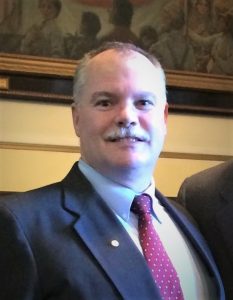
M Health Fairview EMS
A strong ethical foundation is paramount for any organization’ success. As our profession continues to mature and evolve, the complexity of our environment will certainly challenge what we do and how we do it. Having strong leadership influence from the AAA, assuring that we continue to do the right things for the right reasons will help assure success. Having integrity and a strong ethical awareness are characteristics that I am proud of and continue to hone with purpose.
Chuck Kearns, MBA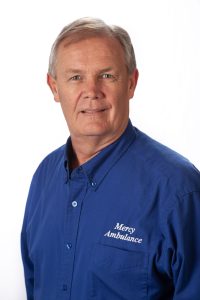
Mercy Ambulance Service
The Ethics Committee is an essential part of any respected healthcare organization. Hopefully, the Ethics Committee is not called upon often or at all, but if there is a concern voiced by a member or organization, a vehicle and process must be in place to review such matters. I have had ethics training from my church and experience in dealing with legal matters where behavior and fairness must be considered. In the spirit of volunteerism, I offer to give my time to serve on the Ethics Committee of the American Ambulance Association.
Marc Kilman-Burnham
My desire to serve on the Ethics Committee stems from a deep-seated belief in the foundational importance of ethics within the Emergency Medical Services (EMS) profession. For me, it’s not merely a set of rules, but the very DNA of our service – the bedrock upon which public trust, professional excellence, and compassionate care are built.
With a career spanning since 1997, I have had the privilege to witness and contribute to EMS from numerous vantage points, evolving from a hands-on patient care provider as a Wheelchair Technician all the way to a strategic leader as a National Director. This extensive journey has provided me with a comprehensive understanding of the diverse challenges and critical responsibilities inherent in our field, from individual patient interactions to large-scale organizational policy. It has solidified my conviction that as first-line healthcare professionals, we, as EMS providers, must hold ourselves to the absolute highest standards.
Paul Main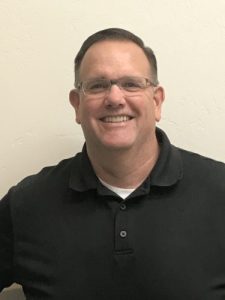
American Ambulance of Visalia
I am honored to express my interest in serving on the Ethics Committee of the American Ambulance Association. Having previously served on various committees, including the Ethics Committee and on the Board of Directors for Region V, I understand the critical role the ethics committee plays in shaping the trust, credibility, and professional standards of our industry.
Serving on the Ethics Committee offers a unique opportunity to uphold and advance the Association’s core values of integrity, fairness, and accountability. I am committed to promoting ethical conduct across all levels of our Association and ensuring that our members are supported by a principled and transparent framework.
With your support, I will continue working with the Association to foster a culture of ethical excellence and mutual respect, reinforcing the trust that supports our shared mission and strengthening the standards that guide our profession.
Scott Tomek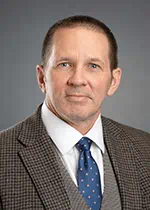
Allina Health EMS
As Director of Risk and the Office of the Medical Director, I’ve seen firsthand how ethical decision-making directly impacts patient care, provider safety, and public trust. I’m seeking to join the ethics committee because I believe that upholding strong ethical standards is essential in a field where decisions are often made under pressure, and with limited information.
My background in risk management gives me a unique lens to identify potential ethical blind spots and help develop proactive strategies that support both compliance and compassion. I’m particularly interested in contributing to discussions around equitable access to care, provider conduct, service financial challenges, and the ethical use of emerging technologies in EMS.
Serving on the ethics committee would allow me to collaborate with colleagues who share a commitment to integrity and accountability, and to help shape policies that reflect our shared values and responsibilities to the communities we serve.
